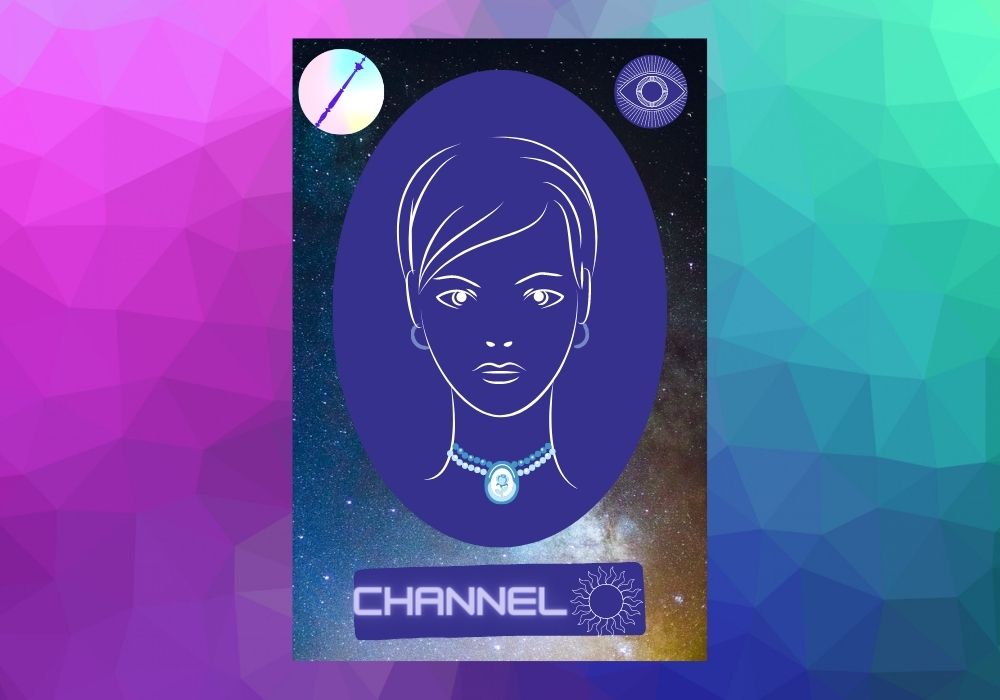
- Is she a Villain?
- Is she a Nemesis?
- Here is a process to create your final antagonist.
- Your Antagonist doesn’t have to be antagonistic to the reader.
- Your Antagonist can be sympathetic to the reader.
- What if the Protagonist had the less desirable position through your story?
- Would you pass onto the Antagonist’s side?
- Most likely…
- What about the cast of your story?
Her grandiose Goal, Her nurturing Name
- Characters begin as Souls.
- The physical manifestation is 2ndary.
- Therefore, considerations such as gender, ethnicity or age are irrelevant in the early stages of character creation.
- Age could matter more than the other 2 for experiences reason or skill honing.
- But even then your characters could be organized, efficient & focused and therefore develop their potential faster.
- Teamwork & support from their peers (allies or adversaries) also helps.
- An Antagonistic soul impresses.
- It may be rejected or accepted, but an antagonistic soul provokes reactions.
- An Antagonistic Goal is 1 that will face rejection.
- It is also a goal that will attract other Souls.
- The best goals are team-oriented.
- Being an antagonist does not mean being selfish.
- Your antagonist needs to take care of her team.
- The gorgeous antagonist will gather different layers of allies.
- 1 of them being their family.
- Her Name will translate her goal.
- You can also describe her most core personality trait through her name.
- The place she was created would make a suitable name.
- This place determined what her life would be.
- It is in most cases the origin of her goal.
- Where does she come from?
- Who raised her?
Her obvious Strength – Charm
Physical
- If your character can get physical sympathy from both sexes you’ve did it right.
- Here, it’s not about physical attraction only.
- The other part of the equation is impersonation.
- Would it be enjoyable to be with or to be your antagonist?
- Since it is an Antagonist you will not get full adhesion.
- However, chances are high that even the part of the public reluctant to admit their attraction to your character may want to impersonate her.
- Tall & thin will be the obvious choices.
- Maybe too obvious.
- Try something not too muscular regardless of the gender.
- Some level of musculature development may greatly enhance the attractiveness of your female antagonists.
- Principally at the end of the limbs: forearms & calves.
- Try 3 different Antagonists morphologies (Slender, Curvaceous & Plump) in the same Trilogy.
- How many body types do you know?
- How many body types do you want to use?
- How many head shapes do you know?
- How many head shapes do you want to use?
- Think clear, appealing shapes.
- Curves does not always mean volume.
- Balance the levels of right angles & curves in your characters designs.
- If you have no previous experience with drawing/painting, try to look at George Bridgman’s works on human anatomy & figure drawing.
- It would greatly help to develop a balanced sense of pose drawing & mannerism in your figures.
- Try creating simple rounded characters.
- Pick 3 little animals.
- Develop 9 characters around them.
- Pick 3 slender animals.
- Develop 9 characters around them.
- Pick 3 large animals.
- Develop 9 characters around them.
Mental
- Calm & composed?
- That’s a way, but the right level of aggressiveness can work even better.
- A slow, soft antagonist can easily be perceived as entrancing, as a source of security.
- But a rightfully agressive character, or an ambitious/confident one will act as a straight sword.
- Which one do you prefer?
- The Calm, Soft type will be perceived as a threat only latter in the story.
- Where the Hard, Reactive type can be built as a Rival, allowing you to introduce her in the 1st chapter.
- Whichever your choice is be sure to show the Antagonist’s management skills, particularity if it is your final antagonist.
- Your Antagonist leads, even indirectly.
- If she does not give the orders, she must enroll potent & reliable lieutenants.
Her Strength to Hone – Create relatability
- Progress, Evolution, Change.
- This is what your Antagonist strives for.
- Where does she come from?
- The Strength you Antagonist wishes to acquire is something she’s missing from an early age.
- Because she was lacking this Strength she lost a precious thing.
- Through this loss she realized her powerlessness.
- Whatever the Lessons she needs to learn, these should be displayed clearly.
- Her Hopes can be displayed directly through her acts, discourse or manners.
- They can be displayed indirectly through her acts, discourse or manners of their allies.
- Who raised her?
- Was it a family member?
- Was it a stranger who captured her?
- With/without her knowing?
- What did this person promise her?
- What did this person offer her?
- Is this character still alive?
- Will you use her in your Story?
- What did she teach the Antagonist?
- What were/is this person’s Strengths?
- What was/is this person’s Goal?
- Did she transmit this Goal to the Antagonist?
- What was their life like?
- Why did they quit the place they were born?
- What were the 1st Crisis the Antagonist faced?
- What were the latter Crisis the Antagonist faced?
- What were the 1st Crisis the Antagonist caused?
- What were the latter Crisis the Antagonist caused?
Her obvious Weakness – Ambition
Ambition is the reason why your Antagonist, or your protagonist, may lose.
Taking initiatives & risks is part of your main characters soul.
That’s why they’re the main characters.
Main Character is used indifferently, wherever it is an Antagonist/Protagonist.
It just reveals the level of importance of the Character.
- An Ambitious character is Built on Want.
- Want is the result of shortage.
- The deeper the lack, the stronger the Want.
- What did your character do to transform their Physical appearance?
- How will this appearance serve her goal?
- How can you see her ambition in her accessories?
- Her Body?
- How does she display this appearance?
- Who walks with her?
- How does she dress usually?
- On Ceremonies/Celebrations?
- What did she do to reach her Mental state?
- Who admires her?
- How does that affect their actions?
- How does she speak usually?
- During tensed situations?
- To people she dislikes?
- Where does she come from?
- What habits did she develop by living in this place?
- What’s her perspective on the outer world?
- What Abuses did she face?
- How Frustrating was the life in this place?
- How degraded was the place itself?
- Could she access basic Necessities?
- Could she fulfill growth-related needs?
- Who raised her?
- What Weaknesses did she transmit to the Antagonist?
- Did she Abuse the Antagonist?
- What’s the Antagonist perspective on strangers since?
- How Frustrated this person was?
- Where did her Frustration came from?
- Could she fulfill the Antagonist’s basic Necessities?
- Did it fill her frustration?
- Did it remember how incapable she was?
- What was their life like?
- Did they ever went out for vacation?
- Where they cloistered in a prison?
- Was the Antagonist lost this person?
- Did she quit the place she was born because of this person’s demise?
Hidden Weakness – Enhance relatability
- Your Antagonist’s hidden nature will unfold in the last chapters of your story.
- How do you want the public to feel about her?
- Do you want to public to be Disgusted by your Antagonist?
- To feel betrayed because at the end they discovered the nature of their goal?
- To finally feel sympathy/empathy, because they discovered their goal?
- To feel rightful for hating this discutable Individual for the whole story?
- To feel regretful/ashamed for hating this relatable Individual for the whole story?
- How to choose the Hidden Weakness?
- What’s the 1st Trauma your Antagonist went through?
- How did it change her?
- How does she react when it is mentioned?
- How did she act for preventing people from discovering it?
- Does she know who knows about it?
- What’s her relationship to these people?
- Can she silence them if necessary?
- The 1st Scar never heals.
- Capitalize on it.
- It shouldn’t be the lone reason why your Antagonist is weak though.
- Find a quirk to enhance the effect of this traumatism.
- Make it a mundane habit for the character.
- It can be a favorite dish.
A Silent/Quiet Antagonist
- How composed is she when it comes to end one’s life?
- An Animal life.
- A Human life.
- How composed is she when death comes for her?
Don’t let her be alone.
- A gorgeous Antagonist builds her Team around her Goal.
- She needs advisors, suppliers, motivators, protectors.
- She needs support from external parties too.
- Her ability to identify stakeholders, particularly opponents to her goal, is crucial.
- If she ever needs to adapt her strategy, namely ask for the Protagonists help, she ought to understand who is reliable.
- She can use people, without harming them.
- She does not need to hinder to succeed.
- In acts & manners she must attract.
- She can even be admired by most of your cast.
I love you.
- It is the final form of Antagonistic relationship.
- The moment you decide to develop a Soul/Mind/Flesh relationship between your Antagonists & Protagonists is the moment your story becomes endearing.
- Your Protagonist will have to face the Antagonist personally.
- Or choose to flee.
- The relation does not have to be visible in the early chapters.
- It doesn’t have to be conclusive, even at the end.
- It doesn’t even have to be supported by the cast.
- It could be rejected by every other character, it doesn’t matter.
- What matters is your Protagonist/Antagonist.
- It doesn’t have to be straightforward.
- Even the Antagonist may be unaware at 1st.
- It can be pointed out by a 3rd party, a member of either team.
- Or even someone outside the Antagonist’s & the Protagonist’s team.
- Someone totally oblivious to the situation.
- This outsider may even want to exploit this unforeseen relationship to destroy both teams.
